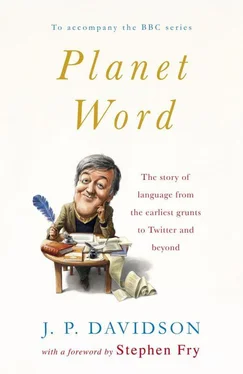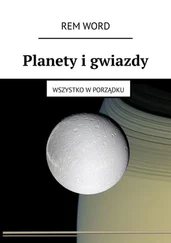Let’s start at the beginning, where all good stories should start. The trouble is, of course, we don’t know when or how language started. All we know is, language evolved, just like we did, and continues to do so. But there are plenty of stories — myths of origin from the Bible, folklore and oral tribal traditions — which try to explain why we have so many languages. The Tower of Babel story in Genesis is probably the most famous. Versions of it appear throughout different cultures, but the one in Genesis has a precise function: to reconcile a creation myth with the existence of the extraordinary variety of languages, often living side by side. The priesthoods and shamans of many religions (not just the Abrahamic ones) had to create myths to explain how and why there are so many languages.
The story in Genesis goes that the people on earth did originally speak one language and live together. They built a city, and then a tower as a kind of communal rallying point, so high that it stretched up to heaven. God saw this as a dangerous sign of the ambitions and strength of men, so decided to break their unity by breaking their mutual understanding. He went down and ‘confounded their language that they may not understand one another’s speech and so the Lord scattered them abroad from thence upon the face of all the earth’.
An interesting origin myth is that of the Snohomish tribe, a Salishan-speaking people of the Pacific North-west of America. To start with, it’s not so different from the creation act in Genesis. Their Sky Chief makes the world in pretty standard fashion: he gets some clay, rolls it into a big ball, covers it with soil, makes heavens and an underworld, connects all three with a world tree and then makes all the animals, including humans — man first, then woman out of man’s tail. After that it gets creative. People start arguing whether the noise that flying ducks make comes from the beating of their wings or the wind blowing through their beaks. The chief calls a council to resolve the issue. The arguments become heated and bitter, and in the end they cannot agree, so the tribe splits up into wing-beaters, beak-blowers and agnostics. They scatter across the land, creating new communities. And this, so it is told, is the beginning of all the different tribes and tongues of people.

The Tower of Babel, after which language divided
The profusion of languages amongst our species was, and continues to be, an extraordinary feat, putting new hunting tools and techniques in the shade. It is our defining achievement. But in a scientific sense how did we evolve to be the talking ape?
In the 50,000 to 100,000 years since we first started making sounds anything more convincing than ughs and grrs, many languages have come and gone. There are over 6,000 languages spoken on the planet today — some by more than a billion people, some by only a handful.
Languages evolved as rapidly as homo sapiens spread over the planet. It is the power of language which is crucial to man’s survival: the grammars with their future tenses and conditional clauses that have empowered our species to think in terms of possibility, to hope and reach beyond the extinction of the individual. It has cemented tribal identity and allowed communal activities unlike those of any other species.
With language we build fictions, and an ‘otherness’ from our consciousness. And this, in a Darwinian sense, is of immense benefit: it is the essence of our creativity. It’s also the glue that binds us together as social animals. Each language has its own way to articulate reality and dreams and so create poetry, myth, history and laws. Memory is held in language, and that defies time.
Language throws up many questions that generations of philosophers and scientists have sought to investigate. One of the trickiest is whether we can think without language, and there is no ‘correct’ answer. Nor is there one to the question of whether the language we speak affects the way we think. Does a German speaker have a more technical way of thinking, or a Frenchman a better understanding of love because they have written about it so much?
The other big debate is whether language is innate, part of our nature, our DNA, or a product of our environment, nurture. It’s extraordinary that, within a matter of months, a mewling and cooing baby will begin to explore language with all its complexities of vocabulary, syntax, grammar, phonetics and metaphors. Remarkably not much later than it takes the average child to learn to walk, it will also have begun to use pronouns, and by the time the child is three to four years old it will not only comprehend stories and commands but will be able to construct relatively complex syntactically correct sentences with adjectives, prepositions and verb tenses. And what is truly astonishing is that the child won’t even notice it’s doing it.
What is even more amazing is that, if you plonk any young child down in a foreign culture and within a matter of months it will be speaking that language as fluently as any other person there. It might well forget it after a few years, especially if it’s not used, but it will have acquired a language and in the process exercised probably the most complex bit of brain processing that we do.
So how on earth do we do it? There are plenty of theories thought up by legions of linguists, cognitive psychologists, neuroscientists, geneticists and evolutionary anthropologists, who believe they may hold some of the answers to the question of how it is that we humans can talk. There are those, like the linguist Noam Chomsky and his followers, who are firmly on the nature side and believe that we as a species all have a language-acquisition device in our brains and there is a Universal Grammar common to us all. Others are sceptical and think nurture has just as important a role.
Whether you’re on the nature or nurture side of the argument, or somewhere in the middle, what seems incontrovertible is that no one knows for sure. It’s one of the greatest mysteries of our species, but one we’re very slowly beginning to uncover.
Why is it that we can but other animals can’t? Let’s take our closest relatives, our primate cousins, the gorillas.
Ambam is a silverback lowland gorilla who is being rehabilitated at Aspinall’s Port Lympne centre in Kent. Ambam became something of a YouTube sensation when he was filmed walking on two legs. It’s extraordinary to see this immense creature standing upright, looking around, just like a human being. Gazing into his eyes, you see intelligence, and emotions. Gorillas can laugh and cry. But there the communication seems to stop. Because what they can’t do is talk.

Ambam the gorilla at Aspinall’s Port Lympne Centre, Kent
For a start they just don’t have the vocal equipment. A defining feature for our species’ ability to speak is a lowered larynx. This, combined with controlled breathing (apes cannot hold their breath) and the finely tuned muscles in the tongue and lip, enable the air we breathe to be forced through the vocal chords and into the mouth, where it can be shaped with extraordinary subtlety. Just say ‘hello’ to yourself and see how your mouth and tongue move. Well, no other primate can do this. And of course we have the brains for it. But why are we so keen to speak to other animals?
Perhaps it’s because of our otherness from the rest of creation that we are fascinated by the idea. From countless mythic stories in tribal cultures around the world, from the Serpent in the Garden of Eden to C. S. Lewis’ Narnia chronicles, from The Jungle Book and Bugs Bunny to Mr Ed, Dr Doolittle and Stuart Little, the talking mouse, book and movie fiction feeds our yearning for creatures who can talk to us. This desire to communicate with the rest of creation has inspired entertainers, scientists and charlatans in equal measure.
Читать дальше














